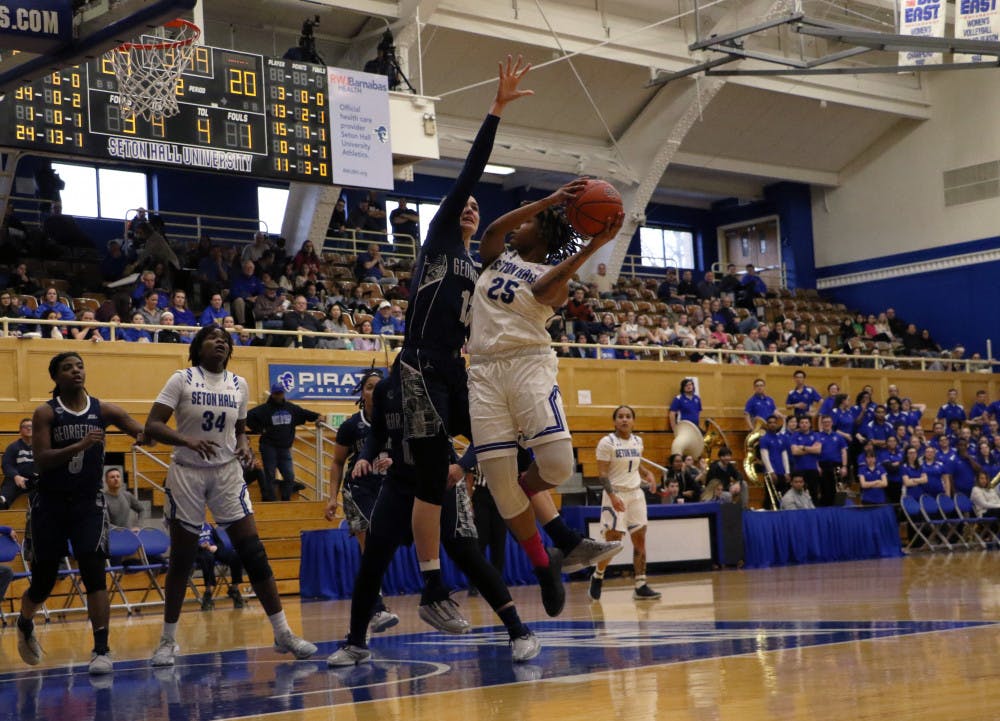"The military was my way of getting an education all on my own," senior journalism major Miguel Diaz said.
Diaz entered the Army immediately after high school.
He started at Seton Hall in 2012 after attending a community college for two years following his second tour in Iraq. He served his first tour in 2004 for 15 months and returned in 2009, serving in the Tactical Operations Center as a radio transmitter operator.
When Diaz was 15, he, like many Americans, watched one of the most destructive scenes of terror to occur on American soil, the 9/11 attacks. "I was more influenced by the planes hitting the towers on Sept. 11, 2001," Diaz said. "That specific event solidified my decision to join. I told my recruiter that I wanted to be in the front line, no matter what."
Diaz was part of the delayed-entry program. After graduation in 2004, he shipped out the next month with the signed consent of his father, he said.
Diaz was the third son in his family to join the army. Following in his brother's footsteps, he shipped out to Washington where he was able to visit his barracks when he got the chance.
"With the military, I didn't have a choice but to mature a lot faster," Diaz said. "When I came out I was 21 and people were already saying I had the mentality of someone in their mid-20s to late 20s."
At such a young age, Diaz explained, preparing to ship out with the Army was nerve-wracking. "The closer we got to deployment, the feeling of fear and anticipation began to settle in, like a nervous person giving a presentation, times a thousand," he said.
However, he said did not feel as if he lacked a typical "college experience." Spending time in infantry gave him what he feels would be a similar experience, he said.
Diaz attended Union County College after his second tour and had to take some time to "transition back into the civilian world." He said that it is necessary to allow time to adjust after serving, time which he lacked in between his first and second terms.
"My first tour I spent 15 months in Iraq, and you know you're going in from house to house, you're clearing everything, you're constantly watching your back and the thing is, it's kind of hard to shut that off," Diaz said.
As an RTO in his second tour, Diaz said, he was the main source of communication between the offices and soldiers out on the ground.
It's a job that involves being on call 24-7, and Diaz explained that experience in the workforce gave him an extra appreciation for his education.
This appreciation also stems from the benefits of the GI bill paying for his tuition. He explained that what he had originally was the Montgomery GI Bill, which pays tuition leaving the excess money for the eligible participant to keep.
"The military was a very important part of my life. If it weren't for my decision to join, I don't know how I would get myself through school," he said.
He said that overall, he is enjoying his experience at Seton Hall, and although the military was the right path for him, it's not for everyone.
"It is quite an experience," he said. "War isn't for everyone, so I wouldn't recommend it as an alternative or a backup plan for everyone. You need to be mentally tough."
Mary Marshall can be reached at mary.marshall@student.shu.edu.





